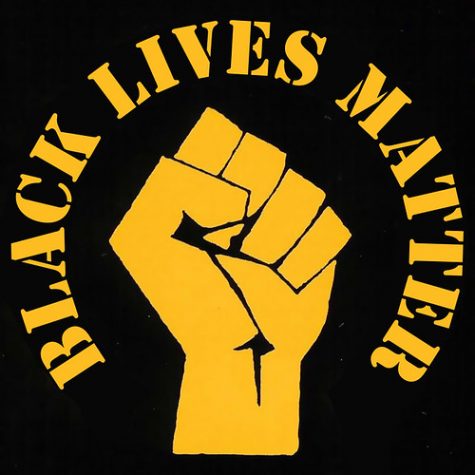OURVIEW: Latest black fatalities reveal persistent prejudices
Each week the editorial board reflects on a current issue in Our View. The position taken does not reflect the opinions of everyone on the Hilltop Views staff. This week’s editorial board is composed of Viewpoints Editor Victoria Cavazos and Online Editor-in-Chief Rosemond Crown.
Two more black men were killed by the police last week in the United States. Two more cities were swept up in the chaos that ensued and dozens of articles have been produced by the mass media concerning the minutiae of each case.
Several articles, including more than a couple in the New York Times, claim to have “everything you need to know about the shootings” laid out, with special attention to what each involved party was doing and thinking at the time of the fatal encounters.
There is a wealth of details about the cases and much contention over the evidence presented, but the question of the underlying racial prejudices driving the violence seems to have largely been pushed to the background.
In both Charlotte, N.C. and Tulsa, O.K., where Keith Scott and Terence Crutcher were shot, respectively, the cities’ police forces have tried to defend the results of the shootings by citing the fact that each officer had “reason to believe” that the men they were confronted with were armed.
Although their testimonies may not be incorrect, their emphasis on the descriptions of their victims as plausibly dangerous and armed are not only incomplete, but ignorant.
It’s bad enough that cops kill based on race; it’s worse that they seem to believe they’re colorblind.
The men they were confronted with were black, and an inherent racial bias is, at least in part, is what triggered the shots.
When we try to explain why these tragedies occur, we naturally gravitate toward the observable facts rather than the less visible preconceptions and prejudgments that cause us to commit horrible acts of violence.
It’s hard to admit that the men and women we trust to protect us are the same people who continue to perpetuate violence against minorities.
But the reality is that these shootings are a product of an underlying hate for the black community that is so difficult to expel because it thrives far beneath the surface of our country’s consciousness.
It doesn’t make sense when innocent black men are shot for no reason.
So we look for a reason, and one always materializes: he was on drugs, he wasn’t heeding the officer’s warning, he seemed like he was grabbing a gun, he was perceived to pose an imminent threat, and on and on.
In a recent article in the New York Times, Kami Chavis, a law professor at Wake Forest University in Winston-Salem, N.C., explained that “even if the officer was mistaken about what [Scott] had in his hand, and yet it was reasonable, it could be deemed a justified shooting.”
A justified shooting.
The problem with much of the media’s commentary on both of these cases has been the obsessive attention to the motives of the police officers, as if killing people in the name of fear is truly justifiable.
Why can’t police officers just admit that they erroneously acted on their instincts and their actions can’t be rationalized?
In 1998, three scientists formed Project Implicit, a nonprofit organization that is devoted to studying the “thoughts and feelings outside of conscious awareness and control.”
They designed a survey called the Implicit Association Test (IAT) to measure the strength of associations between concepts (i.e. black people, white people) and evaluations (i.e good, bad, etc) or stereotypes (i.e athletic, clumsy) according to Project Implicit website and the results of their data-based conclusions “indicate that most Americans have an automatic preference for white over black.”
The results are important because they demonstrate the pervasive nature of unconcious bias; it affects all of us. All of us are responsible for our racist culture.
Everytime we avoid opportunities to acknowledge our own prejudice toward minorities, we are contributing to their oppresion.
Scott and Crutcher were shot because they were black. The officers who shot them reacted how most people naturally would in their position; quickly and irrationally and based on an inherent disposition against people of color.
The conversation we’re having about these tragedies completely misses the point; that America is racist and these incidents wil only get worse the longer we refuse to confront our reality.
Acknowledging our biases is just the first step in treating the deep wounds that racism has inflicted on our society. The solutions lie in taking the responsibility to reverse these, which will take generations.
It starts with ours.







![According to a 1993 archive from Congressional Quarterly Almanac, “[Judge] Ginsburg was known as a restrained and fair-minded judge who did her homework and then some.” She was “considered moderate to conservative on criminal issues and business law,” relatively progressive “on issues such as free speech, religious freedom and separation of church and states,” and more liberal on “civil rights and access to the courts.”](https://www.hilltopviewsonline.com/wp-content/uploads/2020/10/VP-4RBG_CC-by-WFULawSchool-475x317.jpg)
